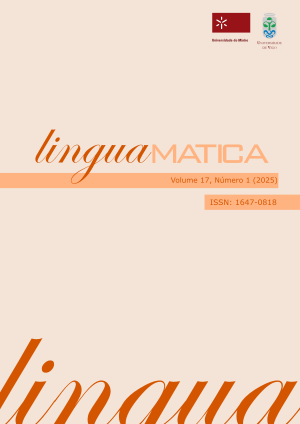Dicendi Verbs as Indicators of Coherence in Abstracts
a human and automated analysis
Abstract
The school summary plays a fundamental role in developing the ability to synthesize and understand texts, promoting the interpretation and the organized expression of the contents of the source text. This study investigates how the choice of dicendi verbs (verbs of saying) in summaries can reflect the coherence and intention of the source text. Given the importance of coherence for the quality of summaries, the research explores the potential of large-scale language models (LLMs) in identifying or suggesting dicendi verbs that are coherent with the purpose of the text, contributing to a more accurate automatic evaluation. The experiments reported in this article used summaries proposed for a given text in a college entrance exam, on which experts and LLMs suggested appropriate verbs. The suggestions were compared and evaluated for coherence with the source text. The results indicate that, although LLMs are capable of identifying appropriate verbs in some contexts, they have limitations when compared to human interpretation. We conclude that LLMs can serve as auxiliary tools in education, despite the challenges related to accuracy and context in automated linguistic assessment.
Copyright (c) 2025 Osmar de Oliveira Braz Junior, Ana Julia Araujo Sanchuki, Roberlei Alves Bertucci, Renato Fileto

This work is licensed under a Creative Commons Attribution 4.0 International License.
Authors who publish with this journal agree to the following terms:
- Authors retain copyright and grant the journal right of first publication with the work simultaneously licensed under a Creative Commons Attribution License that allows others to share the work with an acknowledgement of the work's authorship and initial publication in this journal.
- Authors are able to enter into separate, additional contractual arrangements for the non-exclusive distribution of the journal's published version of the work (e.g., post it to an institutional repository or publish it in a book), with an acknowledgement of its initial publication in this journal.
- Authors are permitted and encouraged to post their work online (e.g., in institutional repositories or on their website) prior to and during the submission process, as it can lead to productive exchanges, as well as earlier and greater citation of published work (See The Effect of Open Access).













